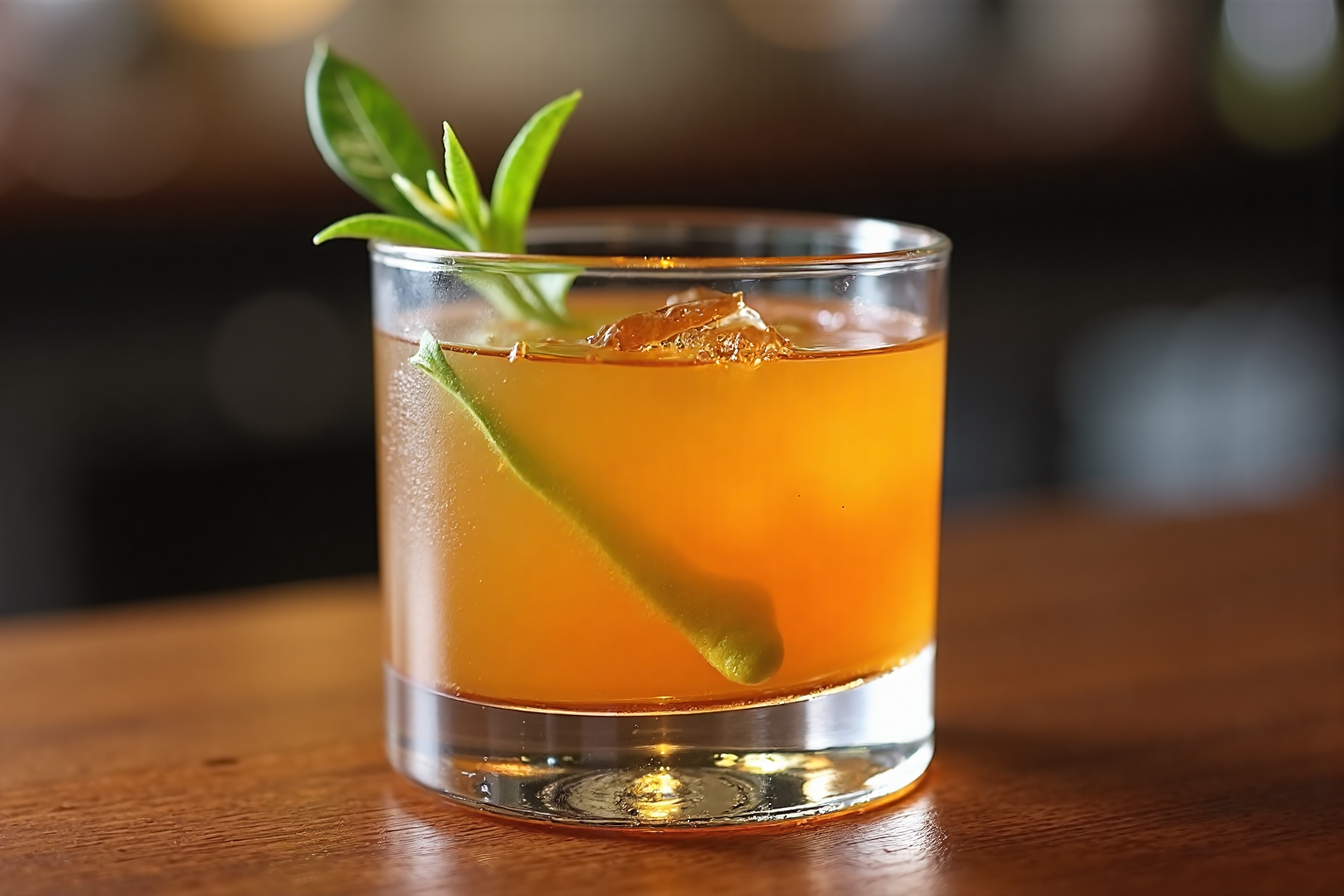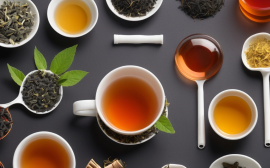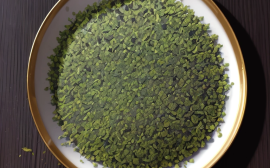A New Brew: The Rise of Tea Cocktails
The clinking of ice, the swirl of spirits, and the delicate aroma of tea – it’s a sensory experience that speaks to the evolving palate of today’s upscale bar patron. Craft tea cocktails are no longer a niche offering; they’ve taken center stage as a sophisticated and sought-after beverage, transforming the cocktail landscape and offering a fresh perspective on mixology. This shift reflects a broader consumer trend towards mindful consumption, where quality ingredients and unique flavor profiles are paramount. The modern drinker seeks complexity and nuance, and tea infusions provide a versatile canvas for bartenders to create truly innovative and memorable cocktails. This article delves into the art of tea infusion, exploring how this trend is elevating the bar experience and offering actionable insights for hospitality professionals seeking to enhance their beverage programs. The rise of craft tea cocktails is driven by several factors, including the increasing demand for premium ingredients and the growing interest in healthier beverage options. Low-ABV cocktails and mindful drinking are on the rise, and tea infusions provide a perfect platform for creating flavorful and sophisticated drinks that cater to this trend. Bartenders are now exploring the vast world of tea varietals, from delicate white teas to robust black teas and earthy pu-erhs, each offering a unique flavor profile that can be expertly paired with spirits, herbs, and fruits. Imagine a smoky Lapsang Souchong-infused whiskey cocktail or a refreshing gin and chamomile creation – the possibilities are endless. The versatility of tea allows for creativity and innovation in mixology, pushing the boundaries of traditional cocktail recipes and providing a competitive edge for bars looking to attract discerning customers. For bar managers, incorporating tea into their beverage programs presents a unique opportunity to enhance profitability. While premium teas and spirits may require a higher initial investment, the perceived value of these sophisticated drinks allows for premium pricing strategies. By crafting unique and high-quality tea cocktails, bars can attract a new segment of customers willing to pay for a premium experience. Moreover, tea cocktails offer a chance to tell a story, connecting guests with the origins of the tea, the craftsmanship of the infusion process, and the thoughtfulness behind the cocktail creation. This focus on storytelling and experience further elevates the perceived value and justifies higher price points. From sourcing rare tea blends to developing innovative tea-infused spirits, the art of tea cocktails is transforming the upscale bar scene, offering both a creative outlet for mixologists and a sophisticated experience for cocktail enthusiasts.
Crafting the Perfect Infusion: Tea & Spirit Harmony
The fusion of tea and alcohol boasts a rich history, with classics like punch and tea-infused liqueurs serving as testaments to this enduring combination. However, the current resurgence isn’t merely a nostalgic revival; it’s driven by a discerning palate seeking complex, nuanced flavors and a growing awareness of health-conscious options. Today’s cocktail enthusiasts crave beverages that stimulate the senses and tell a story, and craft tea cocktails deliver precisely that. This renewed focus on tea infusions represents a significant trend in upscale bars, reflecting a shift towards premium ingredients and innovative mixology. Crafting the perfect tea infusion requires careful consideration, starting with the selection of high-quality loose-leaf teas. Single-origin varieties like Darjeeling or Sencha offer unique flavor profiles that can elevate a cocktail from ordinary to extraordinary. For instance, the delicate muscatel notes of a Darjeeling first flush pair beautifully with the botanicals of a London dry gin, while the grassy, vegetal character of Sencha complements the crispness of vodka. Exploring various tea types and their origins allows mixologists to create signature cocktails that reflect their bar’s unique identity and cater to the evolving tastes of their clientele.
Experimentation is key to unlocking the full potential of tea in mixology. Cold brewing, for example, often yields a smoother, less bitter infusion, ideal for delicate white teas or floral blends. This method extracts the subtle nuances of the tea without the astringency that can sometimes accompany hot brewing. Conversely, a rapid infusion with hot water can be effective for robust black teas or herbal infusions, allowing for a quicker turnaround time behind the bar. Consider the tea’s flavor profile when selecting spirits for pairing. A smoky Lapsang Souchong, with its distinctive campfire notes, harmonizes exceptionally well with the rich, caramel undertones of bourbon, creating a cocktail with depth and intrigue. Meanwhile, a fragrant jasmine tea, with its delicate floral aroma, enhances the bright citrus notes of gin, resulting in a refreshing and aromatic concoction. These pairings demonstrate the versatility of tea and its ability to complement a wide range of spirits. Leading bars are already capitalizing on this trend, showcasing signature cocktails like a ‘Matcha Martini’ with its vibrant green hue and earthy flavor, or an ‘Earl Grey Old Fashioned,’ a sophisticated twist on a classic that infuses the familiar citrus notes of bergamot with the warmth of bourbon or rye. Syrups, another essential component of cocktail creation, can also be infused with tea, adding another layer of complexity to the final product. Steeping tea leaves in hot simple syrup allows the sugar to absorb the tea’s essence, resulting in a flavorful and aromatic sweetener that can be used in a variety of cocktails. This technique allows for precise control over the intensity of the tea flavor, ensuring a balanced and harmonious final product. Beyond individual cocktails, tea infusions can also be incorporated into larger-batch cocktails like punches, offering a refreshing and flavorful alternative to traditional punch recipes. The versatility of tea extends beyond alcoholic beverages as well, with tea-infused syrups and infusions finding their way into non-alcoholic mocktails, catering to the growing demand for sophisticated low and no-ABV options. By embracing the art of tea infusion, bars can elevate their beverage programs, attract a wider range of customers, and establish themselves as innovators in the ever-evolving world of mixology.
Equipment, Ingredients, and Sourcing Strategies
Elevating the upscale bar experience with craft tea cocktails requires a dedicated approach to equipment, ingredients, and sourcing. Investing in high-quality tea infusers, ranging from simple basket infusers for individual servings to larger, professional-grade infusers for batch infusions, is paramount. Fine-mesh strainers are essential for removing tea leaves and sediment, ensuring a smooth, refined cocktail experience. A variety of shakers, including Boston shakers and cobbler shakers, allows for versatile mixing techniques, accommodating different cocktail styles. Consider adding a muddler to your toolkit for gently releasing the flavors of herbs, fruits, or spices that complement tea infusions. Sourcing premium teas is the cornerstone of exceptional tea cocktails. Partnering with reputable tea suppliers who offer single-origin, rare, and organic blends opens doors to unique flavor profiles and demonstrates a commitment to quality. Look for suppliers who can provide information on tea processing methods, terroir, and flavor nuances, enabling informed decisions about tea and spirit pairings. Building a strong relationship with a tea sommelier or expert can provide valuable insights into flavor profiles and optimal infusion techniques. Offering a “tea flight” allows guests to explore a curated selection of teas, enhancing their appreciation for the nuances of each variety and guiding their cocktail choices. This interactive experience not only elevates the customer experience but also positions your establishment as a leader in craft tea cocktails. Essential ingredients for tea cocktails extend beyond the tea itself. Fresh citrus fruits, preferably organic, provide vibrant acidity and aromatic complexity. High-quality spirits, from artisanal gins and vodkas to aged rums and whiskeys, form the foundation of the cocktail, complementing the delicate tea infusions. Natural sweeteners like agave nectar, honey, or maple syrup offer a nuanced sweetness that enhances the overall flavor profile without overpowering the tea. For instance, a “Genmaicha Gimlet” might feature genmaicha-infused gin, fresh lime juice, and a touch of agave, creating a balanced and refreshing cocktail with a subtle roasted rice flavor. Similarly, a “Darjeeling Old Fashioned” could combine Darjeeling-infused bourbon, a sugar cube, and Angostura bitters, resulting in a sophisticated and aromatic twist on a classic cocktail. The quality of your ingredients directly impacts the final product, influencing the aroma, taste, and overall guest experience. Understanding the flavor profiles of different teas and spirits allows for creative and harmonious pairings. Experimenting with complementary ingredients, such as herbs, spices, and fruits, can further enhance the complexity and depth of your tea cocktail offerings. Continuously refining and innovating your tea cocktail menu based on seasonal ingredients and consumer preferences keeps your beverage program fresh and exciting, attracting discerning guests seeking unique and memorable experiences. By focusing on premium ingredients, innovative techniques, and thoughtful presentation, you can solidify your bar’s position as a destination for exceptional craft tea cocktails.
Pricing, Profitability, and Marketing Tea Cocktails
Tea cocktails present a unique avenue for boosting profitability in upscale bar settings. While the initial outlay for premium teas and top-shelf spirits might be higher, the perceived value of these sophisticated drinks justifies a premium price point, often exceeding the typical cocktail markup. This perceived value stems from the craft and artistry involved in creating tea infusions, coupled with the use of high-quality ingredients. A thorough cost analysis, factoring in tea, spirits, garnishes, and labor, allows for strategic pricing that reflects the quality and craftsmanship while maximizing profit margins. For instance, a London bar known for its tea cocktails reported a 20% increase in overall profits after introducing a dedicated tea cocktail menu, demonstrating the potential for financial gain in this niche market. Consider implementing a designated “tea cocktail hour” or a separate menu section to spotlight these offerings and entice customer exploration. Partnering with local tea merchants can further enhance the narrative and potentially reduce sourcing costs while supporting local businesses. This collaboration also opens doors for unique tea blends exclusive to your establishment, further differentiating your beverage program.
Pricing strategies for tea cocktails should consider several factors beyond cost analysis. Market research plays a crucial role in understanding local consumer preferences and price sensitivity. Analyzing competitor pricing for similar offerings can inform your own pricing decisions, ensuring competitiveness while maintaining profitability. Furthermore, offering tiered pricing based on tea rarity, spirit selection, and cocktail complexity can cater to a wider range of customer budgets while highlighting the premium nature of certain offerings. For example, a tea cocktail featuring a rare, single-origin oolong tea infused with a high-end Japanese whisky can command a higher price than one using a more common black tea and standard gin. This tiered approach not only allows for greater profitability but also showcases the diversity and artistry of your tea cocktail program.
Effective marketing is essential for showcasing the allure of tea cocktails and driving customer engagement. Highlighting the unique flavor profiles, health benefits, and artisanal preparation methods on your menu and social media platforms is key to capturing the attention of discerning consumers. Craft compelling narratives around the origin of the teas, the infusion process, and the mixologist’s inspiration behind each cocktail recipe. Visual content, such as behind-the-scenes photos and videos of tea infusions and cocktail preparation, can significantly enhance customer interest and create a sense of exclusivity. Hosting tea cocktail tasting events and partnering with tea sommeliers for educational workshops can further elevate the customer experience and position your bar as a destination for tea cocktail connoisseurs. Emphasizing the sophisticated and health-conscious nature of these drinks, aligning with current consumer trends, attracts a discerning clientele seeking unique and refined beverage experiences. Collaborations with local influencers and media outlets specializing in food and beverage can generate positive press and expand your reach within the target market. By adopting a holistic approach to pricing, marketing, and menu development, bars can effectively leverage the growing popularity of tea cocktails to enhance their brand image, attract new customers, and ultimately drive profitability.
The Future of Tea in the Cocktail World
The future of tea in the cocktail world is brimming with potential, extending far beyond a fleeting trend. The convergence of consumer interest in mindful drinking, sophisticated flavor profiles, and unique experiences positions tea as a star ingredient in the modern bar scene. Expect a surge in innovative applications, from tea-infused beers and spirits to low-ABV and non-alcoholic tea cocktails, catering to a broader audience and expanding revenue streams. The growing demand for premium ingredients and mindful consumption will drive mixologists to explore rare and single-origin teas, pushing the boundaries of creativity and flavor exploration. Industry leaders predict a continued focus on sustainability and ethical sourcing, with organic and fair-trade teas becoming increasingly important for discerning consumers. This aligns with the broader consumer trend towards conscious consumption, impacting sourcing decisions and beverage program development within upscale bars. For bar managers, this translates to a need for strategic partnerships with reputable tea suppliers who can provide high-quality, ethically sourced teas. Building relationships with tea specialists can also provide valuable insights into flavor profiles and brewing techniques, enabling bars to create truly unique and innovative tea cocktails. The trend towards health and wellness will further propel the popularity of tea cocktails, offering a refreshing alternative to traditional sugary drinks. Consumers are actively seeking beverages that are both delicious and beneficial, and tea cocktails, with their inherent antioxidant properties and diverse flavor profiles, fit perfectly within this niche. Tea’s versatility allows mixologists to create low-ABV cocktails that don’t compromise on flavor, catering to the growing sober-curious movement. Non-alcoholic tea cocktails also present an exciting opportunity for bars to expand their offerings and cater to a wider audience. By incorporating creative mixology techniques, such as muddling fresh herbs and fruits, and utilizing unique tea blends, bars can create sophisticated and flavorful non-alcoholic options that rival their alcoholic counterparts. Imagine a smoky Lapsang Souchong iced tea with muddled blackberries and a touch of agave, or a refreshing Genmaicha and cucumber cooler with a hint of lime. These innovative concoctions not only cater to health-conscious consumers but also elevate the overall bar experience. Tea is no longer just a beverage; it’s a versatile ingredient, a flavor enhancer, a cultural touchstone, and a key component in crafting a successful and innovative bar program. The possibilities are endless, and the savvy bar professional will continue to explore the vast potential of tea in mixology, shaping the future of cocktail culture.



